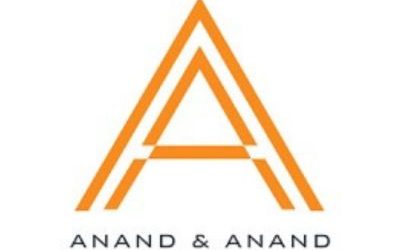Patent owners and implementers have struggled to litigate global FRAND rates when negotiations do not lead to a license. FRAND, the concept that a patent owner who participated in creating technical standards used by all companies in an industry should license their patents on fair, reasonable, and non-discriminatory terms, has been seen as a difficult concept to pin down and the incentives to get the rate correct are especially strong when hundreds of millions of products use the standards covered by the patents.
Sun Patent Trust, established in 2015 to independently license a portfolio of standard essential patents originating at Panasonic Holdings Corporation, has worked hard to resolve licensing disputes by negotiation—previously only filing one litigation when a licensee stopped responding—gaining rate acceptance by a majority of handset companies. Meanwhile, other patent owners and implementors have warred about whether, how, and where the global FRAND case should be resolved. Often, parties choose their home court or a court that may be favorable to their view of the law without regard to the connection of the case to the jurisdiction. This approach has led to messy battles between parties and courts in different countries as to who should properly resolve the FRAND dispute, often including parties seeking anti-suit injunctions to prevent a court in one country from taking the case.
Last week, Sun Patent Trust announced that it has launched novel multi-jurisdictional proceedings in France and India against Xiaomi, the world’s third-largest smartphone brand, on patents declared essential to the LTE-Advanced standard. This follows attempts over the last four years after bilateral negotiations failed to come to a mutual agreement on its worldwide portfolio under FRAND royalty rates and terms.
The patents in question relate to 167 patent families with technology incorporated in nearly all 4G-enabled devices that Xiaomi has produced since late 2018. While Xiaomi’s mobile phone products that use Sun Patent Trust’s patents are the focus of the proceedings in the two jurisdictions, these products are sold all around the world, not just within these jurisdictions.
After a non-fruitful engagement, Sun Patent Trust is employing a twin-track litigation strategy both in France and India. The Indian case, being heard in the High Court of New Delhi, will comprise patent infringement proceedings that will seek to enforce financial remedies against Xiaomi.
Meanwhile, Sun Patent Trust has chosen to bring its FRAND rate-setting case against Xiaomi in the Paris Judicial Court, France—not the home to either party—but the home to the European Telecommunications Standards Institute (ETSI) as the organization that oversaw the creation of the LTE-Advanced standard, who receives the patent declared by patent owners as essential to the standard, and who created the patent policy relating to the FRAND obligation. ETSI’s FRAND policy is also governed by French law. Sun Patent Trust did this without any final decisions by the French courts showing their leanings in setting a global FRAND rate.
The hope is that choosing the jurisdiction with the closest connection to the LTE-Advanced standard would avoid the jurisdictional wrangling by national courts in the spirit of international comity. Unfortunately, various courts have tried to enjoin actions in other countries, but it is perhaps incited by the parties choosing jurisdictions just for a perceived advantage rather than the logical connection with the technical standard and patent policy at the center of the dispute.
Sun Patent Trust wants no more and no less than a fair, reasonable, and non-discriminatory license. The case allows the French courts to take the lead on an important standard created and finalized by international cooperation in France. It may also present the opportunity for other courts throughout the world to recognize that the jurisdiction for determining a global FRAND rate, in most cases, can and should be the jurisdiction of that locus of the standardization efforts.
As managing trustee of an important portfolio of patents it is my hope to blaze a path as to how future disputes might be resolved.

Written by Joe Casino
Managing Trustee, Sun Patent Trust, and Chair of the Intellectual Property Department, Wiggin and Dana LLP
You may also like…
Pravin Anand conferred with the APAA Enduring Impact Award
Pre-eminent IP Lawyer and Managing Partner of Anand and Anand, Mr Pravin Anand, has been conferred with the...
The quiet power of confidentiality clubs in SEP litigation
In standard essential patent (SEP) disputes, especially those involving FRAND (Fair, Reasonable, and...
A $10 million patent win reduced to a $1 lesson in damages
In a decision that will resonate as a stark warning to patent litigants, the US Court of Appeals for the Federal...
Contact us to write for out Newsletter














